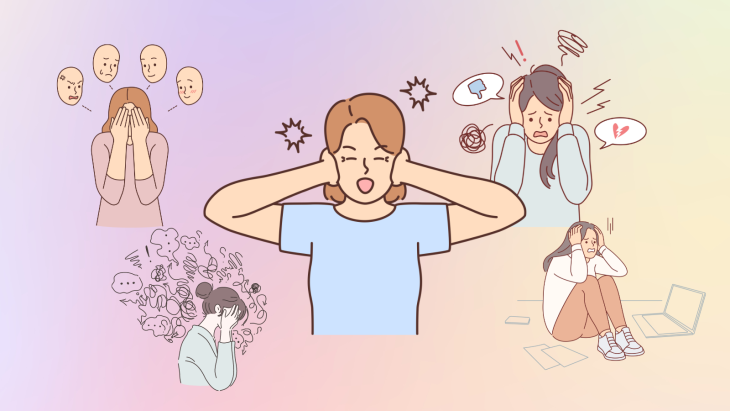Recent Posts
- I broke up with my partner, but now I am having doubts. Did I do it out of the right reasons or was I just being fearful?
- My Quick Temper Pushes People Away. What Do I Do To Manage My Anger?
- How does noise affect my mental health?
- I want to be a better problem solver. What is a step by step approach?
- Escapism. When is it healthy? When is it damaging?
Most Popular
How does noise affect my mental health?

How can something seemingly small have such an impact on our health? Sound or noise is an important environmental factor in both our physical health and our mental wellbeing.
Maybe one reason why we look forward to a vacation is our yearning to get away from all the annoying and never-ending noise of cars zooming and honking along the highways, the rumbling sound of the subway as it comes closer to the platform or the humming, drumming and droning of construction machines in the nearby construction site.
Instead, we long for the breeze rustling the tops of trees, or for the sound of water lapping in the shore. Just imagining ourselves listening to these relaxing sounds already takes us back to those peaceful places.
Noise in the workplace and in the environment
Noise is present in all human activities, and it is usually put into two categories: occupational noise and environmental noise. Studies have shown that occupational noise is a significant factor in dangers and decrease in productivity in the workplace. It has also been found that almost 30 million Americans in the workforce are continually vulnerable to high levels of noise.
Both occupational and environmental noise have been shown to increase our risk for heart and immune system issues , and for psychological effects like stress, sleep problems, anxiety, irritability and mood disorders.
How loud is “loud”?
The decibel (dB) is used to measure sound levels. To give us an idea how we perceive sound, let’s take the example of a quiet room at 27 dB. Relative to the quiet room, the sound of cars at 69 dB, and trains at 117 dB becomes magnified in our perception. Our sense of something being loud doubles with every 10 dB increase. Thus we may perceive that the sound of cars is almost 20 times louder, though with only a 42 dB difference.
Being exposed to high levels of sound puts us at risk of negative health effects.
- Stress, sleep and our mental health.
Nowadays when the world continues to be awake at night, it’s almost certain that environmental noise continues all through the night. The Word Health Organization says that ideally, noise is kept at 40 dB or below while we sleep, and even as low as 30 dB for uninterrupted sleep.
When our sleep is fragmented, we become stressed, whether we know it or not. Our central nervous system gets triggered and releases stress hormones. Particularly, the part of our brain called the amygdala can trigger the flight-or-fight response, which can increase our heart rate, affecting our blood pressure and blood vessels.
- Productivity and work performance.
Multiple studies have shown that chronic and unwanted noise in the workplace negatively affects productivity.
In a study of 50 students, researchers assessed the effect of noise to academic performance, and they concluded that students performed differently at different sound levels, with 110 dB as the level with the greatest negative effect, compared to 70 and 90 dB.
Tips to create a conducive environment at home and in the workplace:
- Minimize exposure to unnecessary conversations.
- Control sound at home.
- White noise includes: the sound from fans, television static, hum from the vacuum.
- Pink noise includes: the sound of light rain, river and wind.
- Brown noise includes: the sound of rumbling thunder, waterfall and heavy rainfall.
Apps and machines are available to provide these sounds.
- Create a bedtime routine.
Many of the sources of noise are outside of our power to control, but there are things we can definitely add to our day in order to increase our tolerance and manage our stress levels. With some changes, we can decrease noise’ effects on our mood, sleep, work performance and our mental wellbeing.
Finding the right talent might be challenging. Discover how working with a premiere job board can help you find the right healthcare and mental health professional you need!







Comments